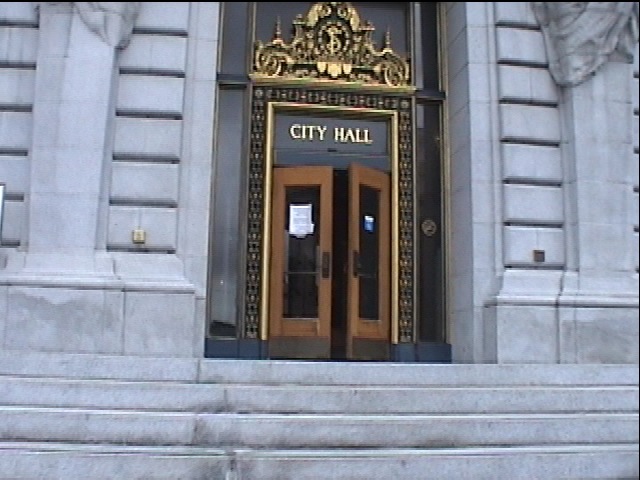Burlington, VERMONT, elects mayor using Instant Runoff Vote
The City of Burlington, Vermont, elected a new mayor using Instant Runoff Voting (IRV) on Tuesday, March 7, 2006. Here is a report from Terry Bouricius, who's based in Burlington and helped with voter education efforts:
Prior to the IRV charter amendment, Burlington elected its mayor by plurality, but with a 40% requirement. If no candidate reached 40% there would be a separate runoff. There have been numerous city council runoffs, but never a mayoral one. In this election, no candidate topped 40% on the first round (the Progressive, Bob Kiss, was the plurality leader with 39%). So it could be argued that IRV is saving the city the expense (and likely lower voter turnout) of a separate runoff election. However, it can't be assumed that voters would necessarily have voted the same way if IRV had not been used. So a runoff might not have been involved, and a candidate might have been declared elected who a majority of voters opposed.
There were five candidates (three major and two minor). Their first round totals were:
119 Beaudin (I); 2611 Curley (R); 3811 Kiss (P); 3107 Miller (D); and 58 Ploof (I).
In the IRV tally, the final two candidates received:
4761 Kiss
3986 Miller.
Interestingly, more Republican second choices went to Kiss than Miller. [Note: A news analysis discussed how Kiss campaigned a lot in Republican areas, likely helping earn more second choices support.]
Burlington has used Accu-Vote optical scanners (now sold by Diebold) for over a decade. In this election they were running on special firmware written around 1996 for Cambridge, MA STV/PR elections, which records ballot images for every ballot, rather than running totals. It is very limited firmware, but workable in a pinch. I would have considered using the regular firmware that would only count first choices and then doing a hand recount if an IRV tally was needed. But the city council committee wanted quicker results.
We are doing some analysis from the original ballot images, which the city has made public. You can download them yourself if you want to examine how voters ranked the candidates at http://www.burlingtonvotes.org
You can find an explanation of the ballot image data format and how to run your own IRV tally using any spreadsheet software at http://www.electionsolutions.com
It is clear that voters had no difficulty using the ranked choice ballots. The city had trained IRV help desk people at each polling place, but they got almost no questions all day. You can see some of the voter education the city prepared at www.burlingtonvotes.org The city also mailed a post card explaining IRV to every residence and had a sample ballot with explanation inserted in the daily newspaper.
There were virtually no spoiled ballots with about 99.9% of ballots being valid. Voter turnout was higher than in the past two mayoral elections and a mere 77 voters (less than 1%) skipped the race on their ballot. Over 80% of voters ranked alternate choices. The low-income wards were just as likely, or more likely, to rank alternate choices than voters in the city as a whole. Republicans were the group that were least likely to rank alternate choices, though 70% of Republican voters DID rank a second choice (not necessarily one of the two finalists). This would appear to be because the field of candidates did not include other conservatives. Those who did not rank a second choice, also would likely sit out a separate runoff between the Democrat and Progressive, considering them both unacceptable.
The Vermont House and Senate Government Operations Committees will be taking formal testimony next week on the Burlington IRV experience with an eye to statewide IRV legislation.
Terry Bouricius, Election Solutions terry@electionsolutions.com 802-864-8382 Fax 209-370-0269 56 Booth St. Burlington, VT 05401
In Minnesota, we could apply this process to city, school board, and other elections, eliminating the primary and saving tax dollars, while providing a democratic result. A bill to allow local governments to use this process is in the works. Contact your legislator to urge support.

